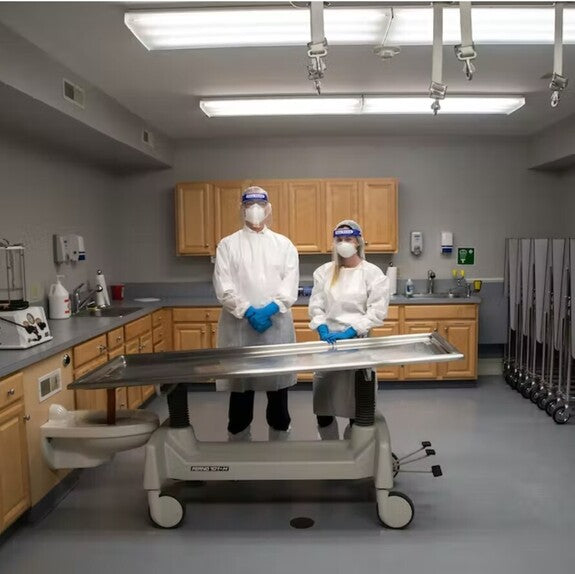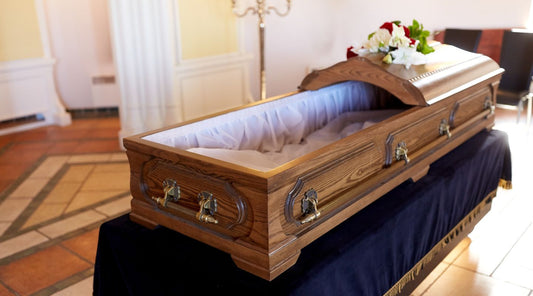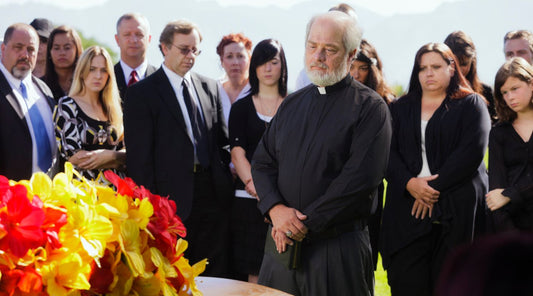
What is a mortuary, and is it different from a morgue?
Death comes eventually to everyone's lives, and oftentimes, it appears without warning. When death comes for our loved ones, it is those of us left behind that have to ensure they receive a proper burial.
However, this dreadful incident can be difficult to process if one doesn’t know the difference between a morgue and a mortuary. Although they are used interchangeably, you will learn that they are not the same. One comes out of 'Respectable' necessity, and the other provides you with an 'Intimate 'closure.
Morgue Vs. Mortuary: What’s The Difference?
In essence, a morgue is a facility located in a hospital or coroner's office which serves as a storage space for the deceased. This is where the dead bodies are identified, and stored in a refrigerated atmosphere, to prevent them from body decomposing.

Meanwhile, a mortuary is the same thing, a department or section found in hospitals where the decedents are stored. But it can also take the form of a funeral home offering an emotional release for the relatives of the deceased. Many funeral homes come with their own morgue attached and offer all the services of a typical morgue as well.
Are All Mortuaries are in the Funeral Homes?
Not all morgues or mortuaries will be attached to a funeral home, so you have to be careful of the distinction. People often use morgues and mortuaries interchangeably, so it can be difficult to understand what they mean.
However, there are a few easy ways to point out funeral homes from standalone mortuaries. Let us go step by step and look at the questions one should be asking in order to differentiate between a morgue and a mortuary.
How Do They Treat The Dead Bodies?
A morgue will perform autopsies and embalming services to prepare the body for burial. It is considered the second last stop before burial and is used to hold the deceased until they are claimed by the family or funeral home. To put things simply, a morgue is a department that takes in dead bodies awaiting identification, or the hospital's recently deceased patients. While a morgue provides basic services, it typically won’t aid you in the burial or cremation. However, some of them might have cremation or burial services, you will have to enquire about these services.
On the other hand, a mortuary, in the form of a funeral home, is a privately owned establishment that provides additional services in relation to death. The major difference is that funeral homes offer services that go beyond simply identifying or embalming a decedent. They will prepare the body, and hold a burial service for the bereaved family.
What Services Do Morgue Provide?
A standalone morgue or mortuary can only partially assist you during the funeral process as they are the first stop where the deceased goes. It is a public space, in the sense that it is the place hospitals use to store the dead. A standalone morgue or mortuary will typically only focus on 'preparing' the body for burial. Some of them might provide burials and cremations, but only in a basic manner.
On the other hand, when a mortuary is attached to a funeral home, it can provide embalming, a meaningful funeral service, on-site burial, and cremation. It specializes in hosting memorable events and ceremonies where the decedent's family can find an emotional release.
Do Morgues Offer Memorial Products?
Most standalone morgues and mortuaries do not provide any memorial products such as caskets, save for a few exceptions. This is because morgues only focus on preparing the bodies, so it typically doesn’t have anything to do with the funeral process itself. Funeral homes, on the other hand, provide coffins, urns, and decorative flowers that will make for a worthy memorial.

Is There A Funeral Director in the Morgue?
Morgues by themselves, won't have any funeral directors. These establishments will only have workers who carry out the essential tasks of preparing the decedent's remains. In other words, they are only ideal if you are on a tight budget and require basic preparation services before the burial.
Meanwhile, funeral homes will come with funeral directors who will take care of the whole process for you. The funeral director will help you prepare for the burial, and offer grief counseling if needed. This makes funeral homes ideal for families and large groups. Here, they can hold a meaningful memorial service and remember the decedent's life before they are buried or cremated.
Funeral homes are considered to be the final stop before moving the body to the burial site. So naturally, this is where we can honor the remains of fallen loved ones before we lay them to rest. On the other hand, morgues are only ideal if you want a simple preparation before heading to the burial site.
What Do Morgues Look Like?
A morgue or standalone mortuary is designed to serve as a public facility. So naturally, it can be quite grim and gloomy in appearance. It does not provide a comfortable environment for the dead and is only focused on preparing the body for the next step.
A mortuary in the form of a funeral home will be much more soothing in appearance. This is because funeral homes offer the family a meaningful experience to heal and remember the deceased. After all, this is the final stage before the deceased is buried, so you can expect everything to be calm, scenic, and comforting.
Are Morgues Good For Viewings?
Some standalone morgues do provide viewing spaces, but not all of them. Additionally, the viewing spaces you'll find here are usually small and compact, not ideal for families and large groups. Meanwhile, every funeral home will provide ample viewing spaces for a meaningful and sentimental memorial. So choose them over a morgue if there is a big ceremony involved.
How Are They Priced?
A morgue will be less expensive, as it will only offer autopsy and embalming services and the occasional basic burial or cremation. While Funeral homes will be priced higher as they offer both preparation, and funeral services.
Morgue Vs. Mortuary: Definitions
One reason for the confusion between the two terms is the lack of or improper definitions we find on the internet. The Oxford dictionary simply defines the word 'morgue,' as a mortuary, while the definition for the latter, is often used interchangeably as a funeral home, or funeral parlor. So, if we go by pure definition, both of them mean the same thing. There is only a difference when a funeral home is attached.
Definitions To Ignore
Regarding morgues, the dictionary even provides an alternative definition: the newspaper morgue. The newspaper morgue refers to a file that consists of valuable journalistic information. It can be essential information about old criminal cases, or clippings of important articles. Such files can benefit a certain newspaper firm in their work, and also serve as a reference file for reporters. However, this meaning has nothing to do with the funeral process, so don’t be confused.

When Should You Choose A Standalone Morgue?
A morgue focuses more on preparing the body and leaves you to do the rest. So if you are confident in handling the funeral service by yourself, or are already familiar with it, a morgue would be a good choice. However, do remember that you will have to arrange for the memorial products through a different provider. A morgue is simply a utility that you can employ before you start the process of laying the deceased to rest. You will have to make additional funeral arrangements by yourself after this point.
When Should You Choose A Funeral Home?
If budget isn’t an issue and you want a significant ceremony for the deceased, a funeral home will work better for you. Funeral parlors understand the weight of arranging a funeral for your loved ones, which is why they offer ample services to make the whole journey easier for you.
What’s more, they provide a symbolic event hosted in a serene environment where families can get the closure they need. Not only will they give you a complete healing experience, but they will also connect you to cemeteries and memorial parks when needed. Overall, it's an establishment that offers a memorable service to remember the decedent's life, as opposed to a simple facility where bodies are identified and held for autopsy.
Conclusion
When approaching a morgue, mortuary, or funeral home, just remember one thing. A standalone morgue or mortuary will only provide autopsy, embalming services, and basic burial or cremation. They typically won’t sell you memorial products, so you'll have to acquire them on your own. Meanwhile, a funeral home will help you with everything you need for a funeral, essentially providing you with a complete package. They will sell memorial products, provide a funeral director, and offer a beautiful event space for the memorial.
If you want are looking for an establishment that can provide you and your family comfort during this challenging time, we suggest you hire a funeral home from the start. Most funeral homes provide embalming services as well, so it won’t be an issue. Alternatively, you could have the body embalmed in the morgue, and then hire a funeral home for the memorial service. However, if you are looking for a quick but respectable burial or cremation, then a morgue will better suit your needs.


